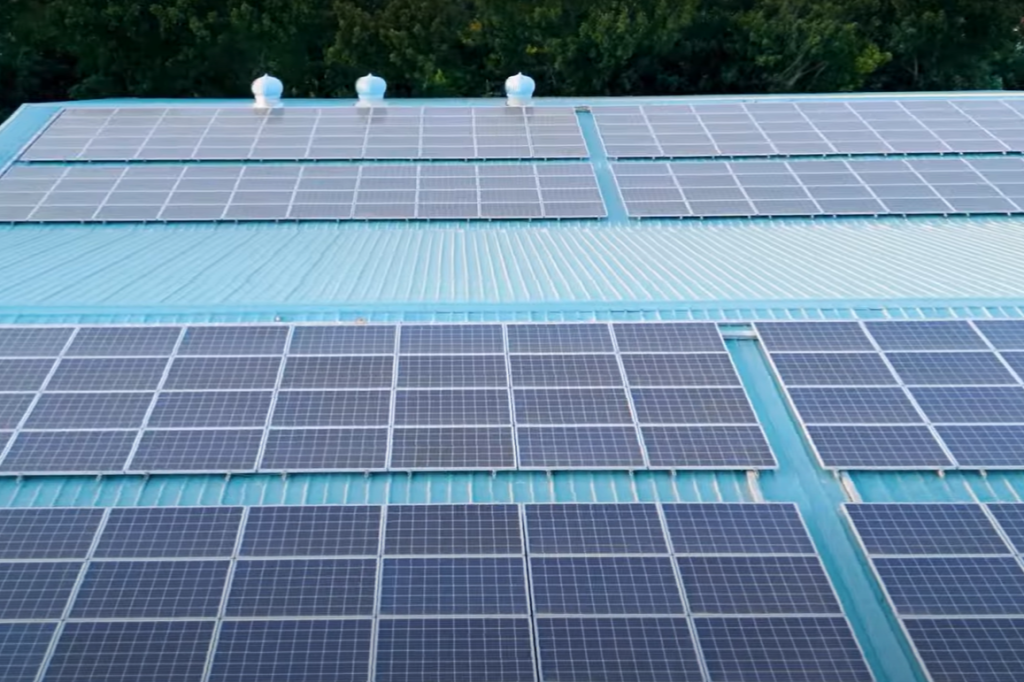
FAST Logistics Group, the leading provider of end-to-end logistics solutions in the Philippines, tackles the importance of sustainability initiatives in business and the benefits of renewable energy in warehouse operations.
Warehouses play a crucial role in the global supply chain, serving as vital storage centers for goods en route to their final destinations. As awareness of climate change and the need for sustainable practices grow, integrating renewable energy into warehouse operations has become a strategic move.
For warehouse managers, sustainability advocates, supply chain professionals, and business owners, mastering sustainable warehouse management — especially leveraging renewable energy — yields significant environmental and corporate benefits. They should explore innovative solutions and strategic partnerships to leverage these practices and reduce their carbon footprint.
What is Sustainable Warehouse Management
Sustainable warehouse management entails integrating eco-friendly practices into everyday operations to reduce environmental impact. It focuses on efficient resource utilization, waste reduction, and adopting renewable energy sources.
Warehouses are energy-intensive facilities, often consuming large amounts of electricity for lighting, heating, cooling, and equipment operation. Companies and businesses can significantly reduce fuel consumption by transitioning to sustainable energy solutions and using energy-efficient systems and technologies such as LED lighting, motion sensors, and advanced HVAC systems.
Sustainability in warehouses also means optimizing space and inventory management to cut down on excess stock and unnecessary use of space. The ultimate goal is to create a warehouse that operates effectively and efficiently while reducing negative environmental impacts.
In essence, sustainable warehouse management is about balancing operational efficiency with environmental responsibility. It is a forward-thinking approach that considers long-term impacts on the planet while maintaining business profitability.
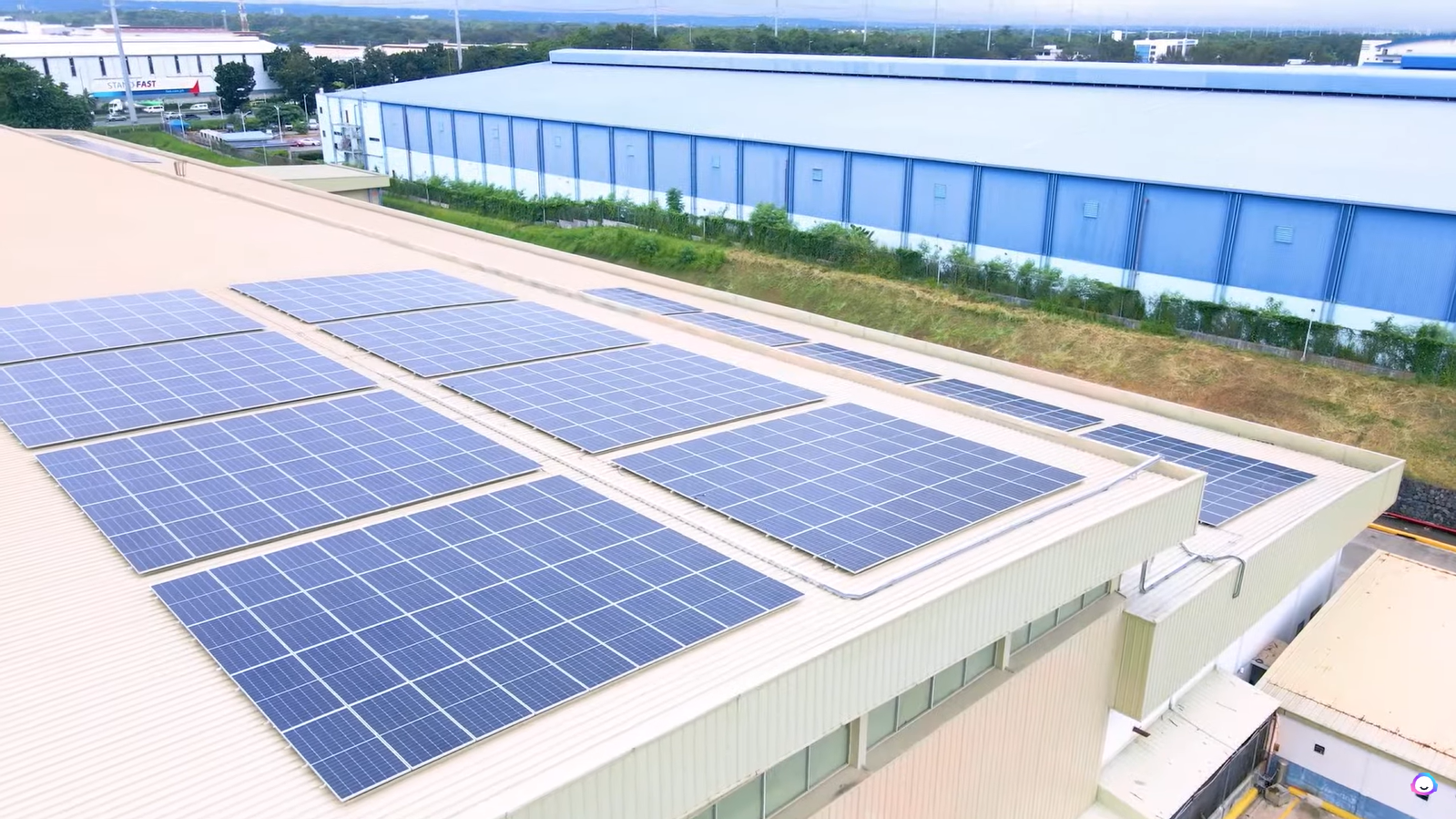
What are the Benefits of Renewable Energy in Warehouse Operations
Supply chain professionals should consider embracing sustainable practices, including the adoption of renewable energy sources, in their warehouse operations. Here are some ways businesses can benefit from energy-efficient systems.
Lower Energy Consumption for Cost Savings
Renewable energy has the potential to significantly reduce electricity bills. Once the initial setup costs for renewable sources are covered, they provide free energy and reduce costs for years to come. These savings can also be reinvested into other areas of the business for growth and innovation and contribute to financially sustainable operations.
Furthermore, the cost of renewable energy technologies has decreased over time, making them more accessible to businesses. Some governments also offer incentives and rebates for companies that adopt renewable energy which further enhance cost savings.
Less Carbon Footprint for the Environment
Traditional energy sources such as coal and natural gas emit harmful pollutants. In contrast, renewable energy sources such as solar and wind energy produce no greenhouse gas emissions during operation.
It means that a warehouse powered by renewable energy sources contributes less to air pollution and carbon footprint. This positive impact on the environment aligns with global efforts to reduce climate change and promote sustainability.
Reduced Dependence on Fossil Fuels
Renewable energy sources can provide a level of energy independence. By generating their own power, warehouses are less affected by fluctuations in energy prices and supply disruptions such as power outages. This stability ensures continuous operations and reduces reliance on external energy providers. With renewable energy systems, warehouses can maintain critical functions even during grid failures, ensuring business continuity.
Energy independence also offers strategic advantages. Companies can plan their energy usage better and avoid peak-time energy costs. This control over energy resources can enhance overall operational efficiency and reliability.
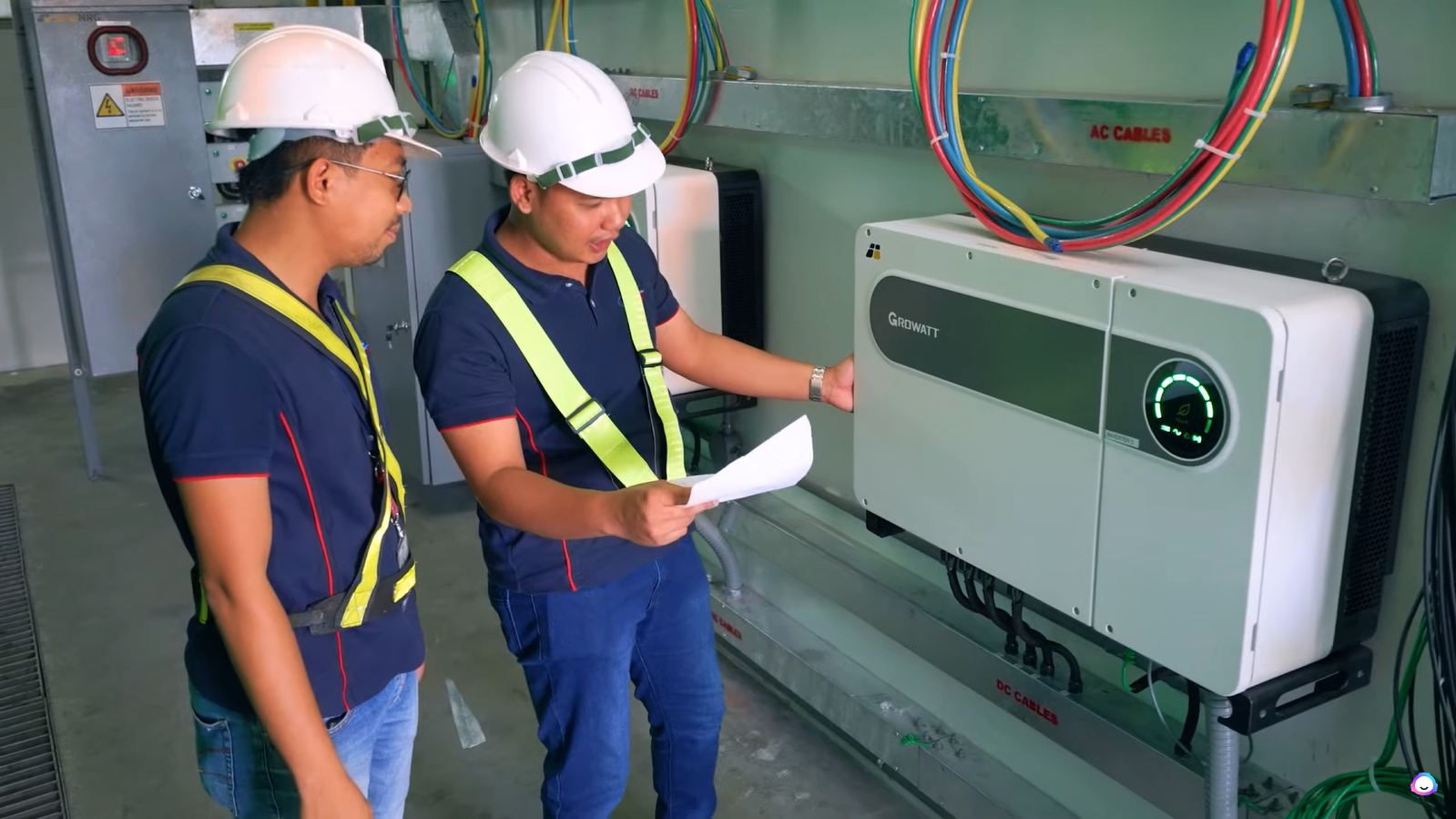
Increased Customer Satisfaction
In today’s market, customers are more environmentally conscious and patronize sustainable businesses. Adopting renewable energy in warehouse operations can attract new customers and retain existing ones. It also positions the business as a leader in sustainability which helps enhance its brand image and customer loyalty.
Moreover, many companies now require their suppliers to meet certain sustainability standards. By incorporating renewable energy into warehouse operations, businesses can fulfill these requirements, maintain valuable partnerships, and meet customer demands.
Ensure Regulatory Compliance
Some countries are implementing strict regulatory requirements to protect the environment. Adopting renewable energy such as solar power can help warehouses comply with these regulations and avoid potential fines that can be costly for an organization.
Compliance with environmental regulations also opens up opportunities for grants and subsidies. Governments often support businesses that take steps towards sustainability such as financial incentives, tax breaks, or additional support. Reducing carbon emissions and leveraging clean energy is also a proactive approach to staying ahead of regulatory changes.
Enhanced Corporate Image
Sustainability is a growing concern for consumers. Companies that adopt green practices often enjoy a better public image. By using renewable energy, warehouses can enhance their brand reputation, attract eco-conscious customers, and differentiate themselves from competitors.
A strong corporate image built on sustainability can lead to increased customer loyalty and market share. Consumers are more likely to support businesses that align with their values, driving long-term growth and profitability.
Moreover, a positive corporate image can attract top talent. Employees today prefer working for companies that prioritize sustainability and social responsibility. Hence, adopting sustainable practices improves recruitment and retention rates and keeps the workforce motivated and committed.
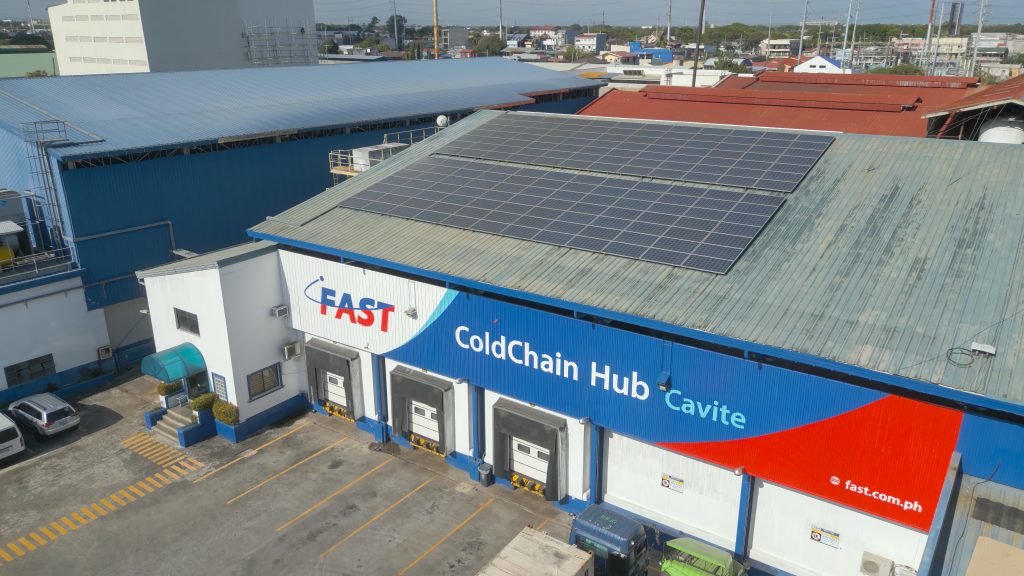
Why is Renewable Energy Good for Business
Renewable energy is not just an environmental choice but a smart business decision. It offers a competitive advantage to companies as it reduces operational costs and dependence on fossil fuels, increases customer satisfaction, ensures regulatory compliance, and enhances corporate image. Businesses that invest in renewable energy position themselves as industry leaders committed to sustainability and innovation.
Utilizing renewable energy can stimulate innovation within the company by encouraging the adoption of new technologies and processes while fostering a culture of continuous improvement. This innovative mindset can lead to the development of new products and services, thereby expanding business opportunities.
Integrating renewable energy also aligns with global sustainability goals such as reducing carbon emissions and supporting green practices. Companies that contribute to these goals can access new markets and partnerships, enhancing their global reach and influence.
What is the Most Sustainable Energy Solution
While several renewable energy solutions exist, each has its benefits and suitability depending on specific needs and locations. Among the most sustainable options are:
Solar Energy
Solar energy is the most widely used renewable energy source globally. It harnesses sunlight and converts it into electricity, making it a clean and endless source of power. Solar energy can be maximized through solar panels installed on rooftops, carports, open fields, and even integrated into building materials and warehouses.
Solar panels store extra energy in batteries for use when it’s not sunny, making them more efficient. These systems also have low maintenance requirements for sustainability and cost-efficiency.
Watch the video below to learn more.
Wind Energy
Wind energy involves harnessing the power of wind to generate electricity. It is an excellent alternative for warehouses located in windy areas, as it produces clean energy with minimal environmental impact. Wind energy complements solar by providing power during different times of the day and year.
A single wind turbine can power a warehouse or even multiple turbines connected to a grid. Wind energy systems also have low maintenance costs and zero emissions during operation. In addition, modern turbines can generate more power with less wind, making wind energy more accessible and viable for various locations.
Geothermal Energy
Geothermal energy uses heat from beneath the earth’s surface to generate electricity. It is a renewable and sustainable source of energy that releases minimal emissions, making it environmentally friendly. While it may have higher initial costs, the long-term benefits are substantial.
Geothermal systems can provide both heating and cooling solutions, enhancing their versatility and value. They can be integrated into building designs to optimize energy efficiency and sustainability.
Hydropower
Hydropower harnesses the energy of moving water to generate electricity. It is a reliable source of renewable energy as it produces consistent power throughout the day and year, making it an ideal option for warehouses with high energy demands.
Hydropower can be implemented through small-scale systems like micro-hydro turbines or larger installations like dams and reservoirs. However, it requires access to a suitable water source, limiting its feasibility in certain locations. Despite this limitation, hydropower has significant potential for growth and remains one of the most sustainable energy solutions.
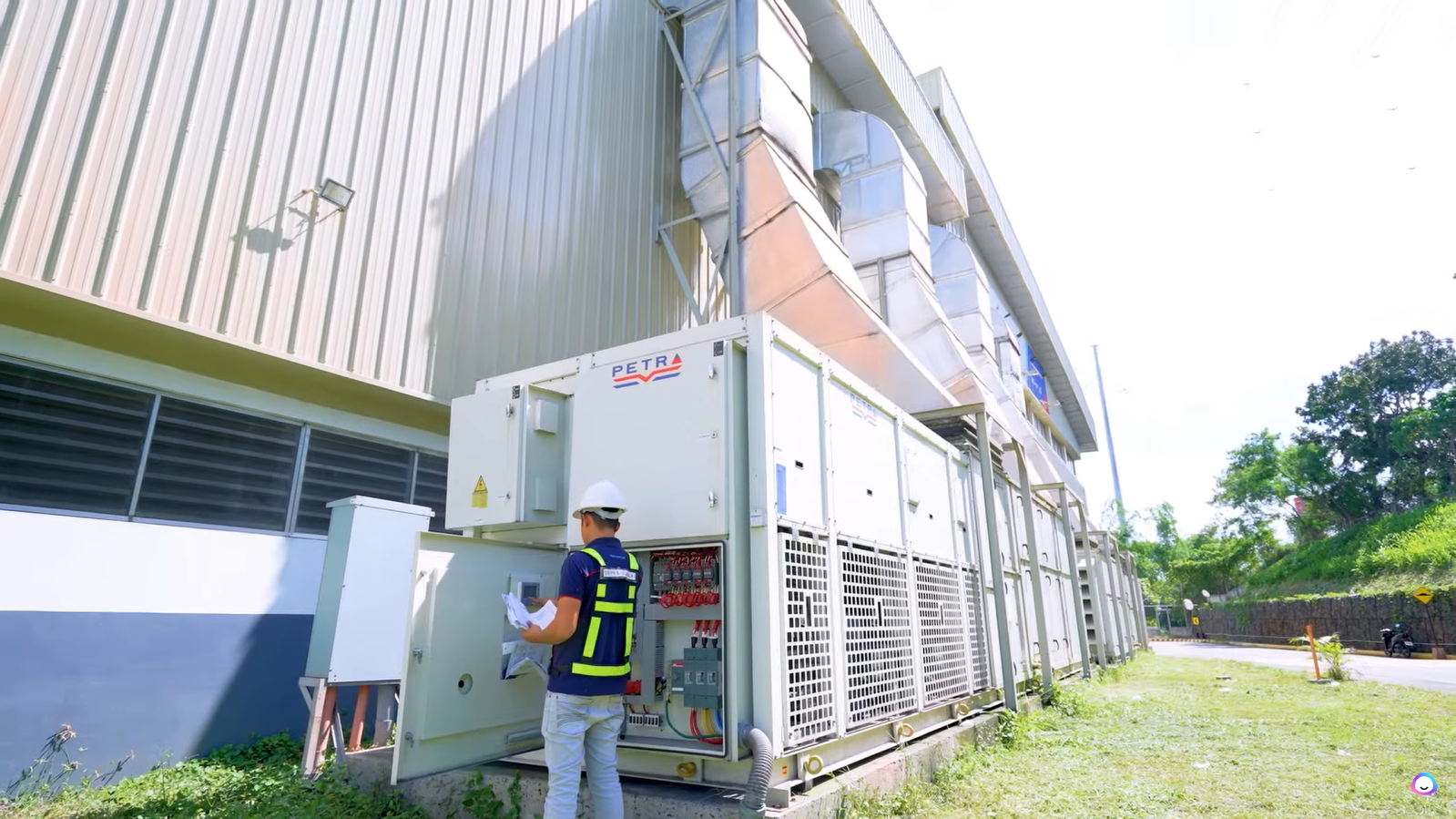
Sustainability in Logistics
Sustainability in logistics is increasingly becoming a vital component in modern supply chain management. Advanced technologies enable businesses to generate electricity and reduce carbon emissions. With sustainable warehouse management and use of renewable energy in warehouse operations, companies can reduce their environmental impact and gain a competitive advantage.
Sustainable logistics also involves optimizing transportation routes, integrating electric or hybrid vehicles into delivery operations, implementing recycling programs, utilizing eco-friendly packaging, efficient inventory control, reducing waste, and partnering with responsible shipping partners. These innovative solutions enable companies to reduce carbon emissions and minimize the industry’s carbon footprint.
As climate change worsens, more companies will confidently embrace green logistics and improve their supply chain practices.
Embracing Renewable Energy Sources in Warehouse Operations
Integrating renewable energy into warehouse operations is a strategic decision that yields numerous benefits. These range from cost savings and reduced environmental impact to energy independence and an enhanced corporate image. For warehouse managers, sustainability advocates, and supply chain professionals, embracing renewable energy solutions can drive efficiency, foster innovation, and ensure long-term success.
By understanding the benefits of renewable energy in warehouse operations, businesses can make informed decisions that align with their sustainability objectives. Whether choosing solar, wind, hydropower, or geothermal energy, the optimal choice depends on specific needs and circumstances. As businesses embrace sustainable practices, they can collectively shape a more environmentally responsible and economically viable future for upcoming generations.
Solar-Powered Warehouse in the Philippines
FAST Logistics Group, the leading logistics and selling and distribution company in the Philippines, has made significant strides in sustainable warehouse management. It integrates renewable energy into its daily warehouse operations to reduce reliance on fossil fuels while meeting energy requirements.
The FAST Logistics Hub in Cabuyao, Laguna stands out as one of the few distribution centers in the Asia-Pacific region powered entirely by 100% sustainable energy. Collaborating with their partners at consumer health company Kenvue, FAST successfully shifted into solar energy within a six-month timeframe to reduce its carbon footprint and achieve greater financial savings.
FAST ColdChain Hub in Imus, Cavite also leverages a rooftop solar system to generate around 6 Gigawatt hours of renewable energy, covering 20% of the facility’s daily energy needs. This hub stores perishable goods, as well as frozen and chilled products from a variety of clients.
Companies with partner with FAST for their end-to-end logistics requirements to take advantage of its industry leadership, extensive capabilities, innovative logistics solutions, and steadfast commitment to customer success. To learn more about our sustainability efforts and how we can help your business, contact our Solutions Expert or visit linktr.ee/fastlogisticsph today
Categories
-

FAST Ahead
Includes case studies and testimonials of our partners as well as other featurettes from industry experts
-

FAST Hacks
We simplify logistics terms and provide practical tips and solutions for the DIY in you
-

FAST Highlights
Know more about our history, various brands, achievements, and news updates
-

FAST Moments
Get to know the people of FAST, our employee programs, as well as our various ways of giving back to the community
-

FAST Solutions
Learn more about the various logistics solutions that we cater to and offer our clients, as well as tech innovations, and service facilities



